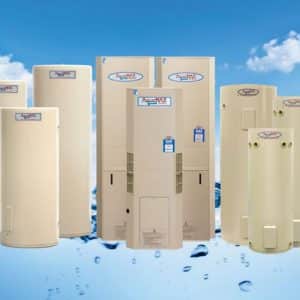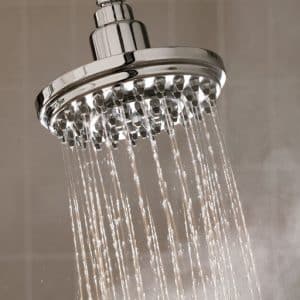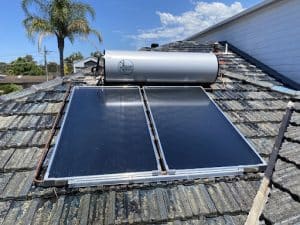
4 Advantages of an AquaMax Hot Water System
If you are looking for a hot water system that

Hot water is a staple amenity for every household. But what about energy efficiency or running costs? That’s the question prompting more Australians to switch to either solar or heat pump hot water.
Hot water systems all come at different prices and efficiencies. Gas storage, continuous flow, and electric hot water systems are the most common hot water systems in use by Australian households. However, these systems are also associated with the highest hot water costs and lowest energy efficiencies. As a result, Australians are turning to solar and heat pump hot water systems because they are budget-friendly and cost less to run.
But deciding between these two types of hot water systems isn’t a simple choice for many homeowners. Luckily, our guide makes this dilemma much easier to solve.
Similar to solar water heaters, heat pumps use renewable energy to provide you with hot water. The main difference is that these systems use heat as opposed to sunlight.
A heat pump operates like a fridge but absorbs warmth from the air instead of pumping heat out. The system relies on electricity to pump a refrigerant, which transfers heat collected from the air to the hot water tank. Although heat pumps use electricity, they are more efficient than electric water heaters and use up to three times less electricity than conventional hot water systems.
But you’re probably wondering how a heat pump hot water system draws heat even when it’s cold outside.
The answer is the refrigerant.
These refrigerants are much colder than the surrounding air and evaporate at low temperatures. As heat always moves by conduction – moving from hot to cold – the heat is transferred from the air to the heat pump hot water system. The warmer the temperature outside, the easier the transfer is. In colder environments, heat pumps don’t work nearly as well as solar hot water systems because the transfer of heat is much less efficient.
When it comes to heat pumps, there are two available set ups.
Both systems feature a compressor and storage tank, but the main difference is whether they are kept together or separate. Neither configuration is more efficient than the other with both systems producing similar hot water outputs, and instead is a question directed at your house’s available space. If space is limited, a split system is the setup for you. Otherwise, if you have reasonable space then you have the choice between either.
The upfront cost for a heat pump hot water system is significantly less than solar water heaters. In comparison to all hot water systems, heat pumps are cheaper to run than gas storage, gas instantaneous, electric storage, and solar electric boosted. As an added bonus, they take less time to install than solar hot water systems which further adds to the cost savings.
Heat pumps are much better at utilising energy than most other hot water systems. More specifically, heat pumps collect up to three times the renewable energy they use than electricity compared to standard electric water heaters.
As the system uses renewable energy to heat the water, less carbon emissions are released into the atmosphere making heat pumps a greener hot water option.
Whether it is rain, hail or shine, heat pumps absorb heat efficiently even without the sun. This means you can expect long term cost savings on your electricity bills.
The compressor on these systems are often noisy, much like an air conditioner. This makes deciding on where to install your heat pump system important as too close to windows or your neighbours can create unwanted noise problems.
Hot water system repairs and maintenance are needed more frequently for heat pumps. Since its configuration is more complex than conventional electric or gas water heaters, a hot water specialist is needed at least once a year to maintain its efficiency and longevity.
Although both solar and heat pump systems share a lot of similarities, there are a lot of differences still separating the two. The most significant difference being the renewable energy source to heat the water.
As the name suggests, solar hot water systems use energy from the sun instead of heat from the surrounding air. To achieve this, the system relies on two main aspects, a collector and storage tank.
When sunlight is collected, it gets stored as thermal energy and is used to heat the water in the storage tank, following a similar conduction process to heat pumps. It is important to note that the heat collected from the sun isn’t used entirely, instead any excess thermal energy is stored in the system for future use. Making solar hot water extremely cost effective in the long term.
When it comes to solar water heaters there are two types of solar hot water collectors, flat plate and evacuated tube.
Most likely the image you picture in your mind about solar collectors is going to be a flat plate. These large panels are installed on your roof and act as a heat exchanger by absorbing sunlight and transferring the solar energy to your water tank.
Flat plate collectors are more affordable than their evacuated tube counterpart and can be roof mounted or split; which is the collector on the roof and the tank on the ground.
The more expensive, but more efficient solar hot water system, features a series of tubes that cover a larger surface area and capture more sunlight. As this type of collector is more effective at capturing sunlight, it is more efficient in colder climates that are more cloudy than sunny.
Solar hot water systems have the lowest running costs out of all available hot water systems. In the long term, you can expect your energy bills to lessen by more than half of your current amount.
Solar water heaters also produce the lowest greenhouse gas emissions than any water heater in the market.
Unlike heat pumps, solar water heaters require very little maintenance, especially if you have evacuated tube collectors. Instead of yearly servicing, these systems only need a hot water service roughly every five years.
While energy-efficient, solar hot water systems are expensive to purchase and install. If your decision is based more upon budget than results, solar may not be your go-to choice.
Having sunlight as a source of energy, whilst renewable, is also subject to fluctuations. Not every location has sun all year round, which means if you are based in an area that has limited sunny days, heat pumps may be more efficient for you.
Both solar and heat pump hot water have cost-saving and environmentally friendly features. But if you’re interested in the best deal possible, a heat pump hot water system is your best bet.
| Heat Pump Hot Water | Solar Hot Water |
| Works well in any weather | Relies on direct sunlight and time of day |
| Doesn’t always require a booster, but when it does the heat pump only uses a small amount | In colder climates the reliance on an electric or gas booster is much higher |
| Low impactful upfront costs | Significantly high upfront costs |
| Can be placed anywhere around your home and is easily hidden | Requires roof space (at least for the collector) and is more noticeable |
| Can be sheltered from the elements | Exposed to all types of weather (storm damage is a particular concern) |
Still don’t want to choose? Easy, just have both.
Solar panels and heat pumps can be combined to provide you with the most effective and cost-efficient hot water system.
But how would the system even work?
The solar flat plates or evacuated tubes will serve as the battery of sorts for your heat pumps. To create the most efficient system we recommend setting your heat pump to turn on at 12 pm when the sun is at its highest. This will allow you to store excess solar energy which can be used at any time even when the sun isn’t out.
Combining the two and timing when to use each energy reserve, saves you more on your energy bill than solar or heat pump systems could do separately as the system relies less on electricity to operate.
Want to learn more about the available heat pump and solar hot water systems, check out the wide selection we supply! Alternatively, call Atomic Hot Water Repairs at 1300 763 734, We offer reliable hot water services and repairs across Sydney with top tier professionalism and absolute transparency!

If you are looking for a hot water system that

Your hot water system will inevitably break down while you

If you want a hot water system that is good
